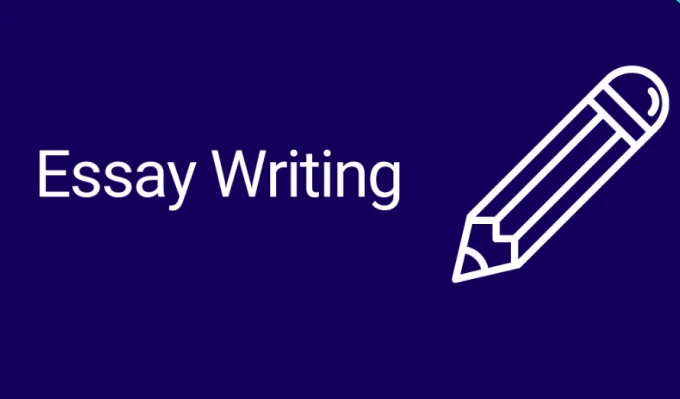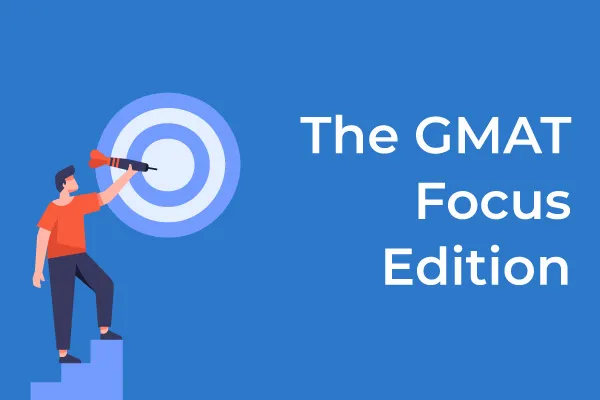Crafting an impactful essay for your business school application is no small feat; it must demonstrate both your writing prowess and your candidacy’s merits. Here’s a comprehensive guide comprising eight essential steps to help you ace your essay, whether you’re aiming for elite institutions like Harvard or local community colleges.
1) Explore Your Topic
Begin by delving into a subject that captivates you. Thorough research is key, encompassing both primary and secondary sources. Primary sources, authored by experts, offer valuable insights, while secondary sources provide additional perspectives and data.
2) Define Your Purpose
Reflect on your aspirations, values, and passions to discern your true calling. Identifying what truly drives you is foundational to crafting a compelling narrative that resonates with your audience.
3) Know Your Audience
Tailor your essay to resonate with your intended readers. Understand their backgrounds and interests, ensuring your content is relevant and engaging. For instance, if targeting international students, choose topics that hold significance globally.
4) Refine Your Draft
After penning your initial thoughts, revisit and refine your essay diligently. Embrace feedback from mentors or coaches, integrating their insights to refine your narrative further. Continual revision is key to honing your message and articulating your motivations clearly.
5) Engage with Professors
Recognize the value of collaboration and feedback, essential principles in the business world. Foster relationships with professors, leveraging their expertise and guidance to enhance your academic journey and career prospects.
6) Allow Ideas to Flourish
Grant yourself the time and space for ideas to evolve. Embrace solitude or seek inspiration from new environments, fostering creativity and innovation. Engage in diverse activities beyond academia to enrich your perspectives and stimulate fresh ideas.
7) Polish Your Prose
Meticulously edit your essay to eliminate grammatical errors and typos. Business school admissions professionals possess keen eyes for detail; ensure your writing reflects professionalism and precision. Reading aloud can help identify and rectify awkward phrasing or structural issues.
8) Craft Compelling Introductions and Conclusions
Bookend your essay with captivating introductions and conclusions. These sections provide vital context and summarize your main arguments concisely. Intrigue your readers from the outset, outlining your thesis and why it matters. Conclude with a compelling synthesis of your key points, leaving a lasting impression on your audience.
In summary, crafting a stellar business school essay demands meticulous planning, thoughtful reflection, and relentless revision. By adhering to these eight steps, you can effectively showcase your writing skills while compelling admissions committees to recognize your potential and invite you to join their academic community.
Understanding the Importance of Your Business School Essay
Your business school essay is more than just a routine academic exercise; it’s your pitch to the admissions committee. It not only displays your academic prowess and business acumen but also gives an insight into your persona, aspirations, and values. In essence, this essay is your golden chance to make your application stand out and leave a lasting impression.
Structuring Your Essay
A succinct and well-structured essay leaves the greatest impact. The thesis statement, often introduced early in the essay, can be seen as the backbone of your write-up. Everything you discuss or argue about should revolve around this main argument, linking coherently to build a compelling story.
The traditional five-paragraph structure taught in high schools, comprising an introduction, three body paragraphs, and a conclusion, is a proven roadmap you can follow. However, this formula is not set in stone. Depending on the complexity and nature of the essay’s topic, the number of paragraphs can significantly vary in college-level essays, including your business school’s essays.
Addressing the Problem
Start the essay by introducing the problem or topic at hand, engaging the reader with an overview or a provocative question perhaps. This approach will help set the stage for your arguments that would follow in the body of the essay. Remember to be persuasive, but without digressing from the key points you intend to address.
Constructing the Body and Conclusion
In the body of the essay, draw a lucid picture of your arguments, presenting supporting evidence when necessary. Compare and contrast various elements if needed, critiquing them along the way. As you dissect the topic, ensure that your arguments remain grounded on the thesis statement, the central point of your essay.
The conclusion should serve as the climax to your narrative, summarizing and tying together your arguments. Reiterate your thesis statement here, providing closure to your discourse. The admissions committee should see the persuasive strength of your arguments, appreciate your critical thinking skills, and recognize your potential to contribute positively to the school.
In conclusion, crafting a great business school essay can be a daunting task, but your ability to weave your thoughts into words can make all the difference. With clear structure, relevant content, and a compelling narrative, your essay can serve as a powerful vehicle to help you navigate the pathway to your desired business school.
Reflecting Your Unique Perspective and Experiences
When writing your business school essay, showcasing your unique perspective and experiences can make all the difference between a good and a great piece. A business school wants to see not just how well you can navigate complex business theories, but also how your unique experiences and insights would enrich their learning community.
So, how does one reflect their unique perspective in an essay? The key lies in narrating your unique experiences and lens into the world. This involves sharing stories and insights, showcasing your challenges, triumphs, and how they have shaped your perspective of the world. Remember, each one of your experiences contributes towards your unique perspective and showing this in your essay will create a powerful impression.
However, a common mistake is to ramble about personal stories without any clear connection to the broader theme or topic of the essay. It’s important to remember that everything in your essay should be relevant to the thesis. This doesn’t mean you can’t use a personal story – far from it. Instead, it means you should select and discuss your experiences in a manner that effectively illustrates your ideas and brings your points to life.
For instance, if your thesis is about business leadership and you’ve held a leadership role in the past, describe your experience, explaining the challenges you faced, the actions you took and the result of those actions. Make sure to emphasise how these experiences shaped your unique perspective on leadership. This will enable the admission committee to understand your leadership style, your strengths and weaknesses, and how you might contribute to the business school community.
In conclusion, sharing your unique experiences and perspectives not only helps to enrich your essay, but also provides a deeper understanding of who you are beyond your academic and professional achievements. It provides the business school with the opportunity to see how you can contribute to the diversity and richness of their community. Therefore, remember to take your time to reflect, choose your stories wisely, and don’t forget to link them back to the broader theme of your essay.
The Art of Being Concise: Managing Word Count in Your Essay
- Most business school essays have word limits, therefore being concise becomes essential to stay within the given limit.
- Being concise does not imply curtailing your ideas. It means to express your thoughts effectively, using fewer words.
- The use of superfluous words or complicated jargon can detract from the overall quality and clarity of your essay.
- Focusing on the relevant points and presenting them in a structured manner helps maintain word count without diluting the essay’s message.
- A well-managed word count also indicates your ability to prioritize information, an important skill in business management.
Writing with Passion: How to Inject Enthusiasm in Your Essay
Welcome to the vibrant world of creating passionate essays. Remember, what makes your business school essay genuinely stand out is the vitality, the soul you breathe into it. Like every form of writing, your essay is a reflection of you, and naturally, it should echo the excitement you feel about your subject or the path you wish to pursue in business.
You may wonder, how exactly to infuse passion into your essay? Let’s look at some effective strategies:
Connect with Your Topic
First and foremost, understand what you’re writing about. Make it personal. Connect it with your experiences, goals, and dreams. Your passion will naturally seep into your writing when the subject resonates intimately with you.
Use Active Voice
Remember, enthusiasm is infectious! One of the most effective ways of conveying it is to use active voice. Express your thoughts directly and dynamically. Use strong verbs and avoid passive constructions.
Narrate a Story
Nothing is quite as compelling as a well-told story. Weave your experiences into a story that engages and draws in the reader. Let your unique narrative highlight your enthusiasm.
Choose Your Words Carefully
The power of language can never be underestimated. Ignite your reader’s interest with descriptive and emotive words. Your word choice can have a direct impact on how engaging and passionate your essay is.
Study the masters, but above all, let your voice shine through. Express yourself with passion, sincerity, and directness. Remember, your essay is not just another academic exercise. It is not just a list or a dull exploration of a topic. It’s your chances to let the admission committee into your world – let them see your dreams, your potential, and your enthusiasm for business. Make them feel your passion!
Addressing Weaknesses in Your Essay: Turning Negatives into Positives
Let’s face it, nobody’s perfect and this encompasses our professional lives. Business schools are not oblivious to this reality. In your essay, candidly addressing your weaknesses can illustrate self-awareness, ability to receive feedback, and capacity for growth. The key however is not just to expose your flaws, but to convert them into positives or even elaborate on what strategies you’re employing to mitigate these shortcomings.
Understanding your weaknesses
Initial step of this approach demands self-assessment. There’s a difference between a weakness, failure, and a fundamental flaw. Focus on weaknesses you’ve recognized and are investing to improve. This might be a professional skill you need to refine, or an aspect of your leadership style you’re working on.
Converting negatives into positives
Once you’ve identified a suitable weakness, you can then frame it positively. This doesn’t mean masking it with a false strength, but genuinely showcasing how tackling this challenge is making you better. Perhaps you’ve undertaken new responsibilities, pursued further training, or cultivated better habits that both attest to your determination and contribute towards overcoming your weakness.
Consider this example: You might recognize that you struggle with public speaking. Instead of leaving it as a vague confession, you can elaborate how you joined a local Toastmasters club or enrolled in a public speaking course to improve.
Shaping Your Story
While discussing your weaknesses, ensure your narrative demonstrates progress. Highlight the steps you took, what you learned, or how you have evolved as a result. This takes your narrative beyond mere confession, making it a story of personal growth and resilience.
Last Thoughts
Remember, everyone has flaws. The aim is not to project yourself as a flawless individual but as a self-aware and proactive one who acknowledges imperfections and takes concrete steps towards improvement. Your ability to do this not only imbues your essay with authenticity but also speaks volumes about your personal character, making your profile all the more relatable and impactful.
So, embrace your weaknesses, use them to craft a compelling narrative, and seize this opportunity to convincingly relay your journey of personal growth and continuous improvement.




